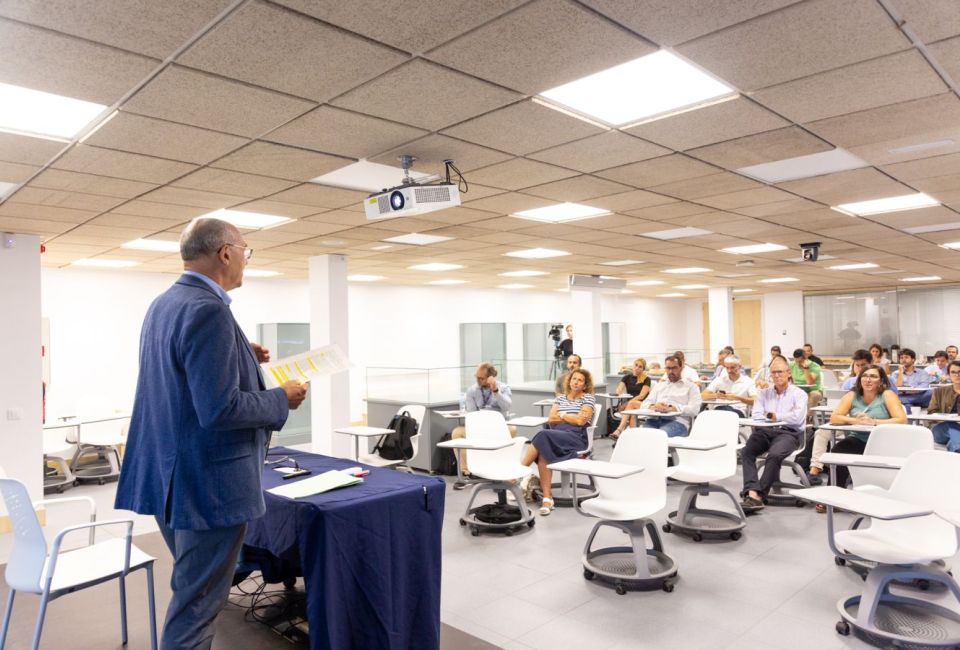Reuse of treated wastewater, key to combating global water scarcity
CT BETA is working on several national and international projects in the field of water reuse

The global increase in the demand for fresh water and the increasingly frequent episodes of drought mean that the reuse of treated wastewater is considered to be one of the promising solutions to respond to this major challenge. In Europe, episodes of water scarcity have increased dramatically in recent decades and affect 11% of the population on a regular basis. The Mediterranean region is clearly the most affected, with 20% of its population (Spain, Portugal, Italy, Southern France, Cyprus, Greece and Malta) living under constant water stress, a percentage that rises to 50% during the summer period.
Faced with the desire to move towards new models of circular economy and the substantial reduction of its water footprint, the agri-food sector is one of those that is already beginning to consider new options for water recovery and reuse. In this context, the BETA Technology Center of the University of Vic – Central University of Catalonia (UVic-UCC) has several lines of research open. One of the projects it is working on is AccelWater, funded by the H2020 program and with the participation of CT BETA itself, the INNOVACC cluster and the meat sector company MAFRICA. The project is implementing a pilot in this company, which has been approached from the perspective of “zero waste” and which tests recovery systems suitable for all its effluents, both liquid and solid.
Projects such as AccelWater are very relevant for the meat sector, given that pig slaughterhouses can consume between 250 and 550 liters per head of animal slaughtered, with the cleaning of carcasses and the cleaning and sanitization of equipment and facilities being the activities that generate the greatest water consumption. Cattle slaughterhouses have even higher water consumption, between 500 and 1,000 liters per animal.
New water reuse projects underway
Apart from European projects, CT BETA is also working in the field of water reuse thanks to funding from the Rural Development Plan of Catalonia. This year 2022 it has started its participation in a new operative group coordinated by INNOVACC and with the participation of several relevant companies of the meat sector. This operational group, under the name of REAQUA, will focus on innovative strategies for the reuse of water in the meat industry, based on the evaluation of technical, economic and regulatory limitations to guarantee its safe use.
Thanks to the funding received for Demonstration Activities from the Department of Climate Action, Food and Rural Agenda (DACC), CT BETA has also started working on the elaboration of a technical guide for the livestock and meat sectors that will provide information on the available technologies for water treatment and recovery, as well as their associated costs. This guide should be a useful tool for identifying which steps in the production process of the livestock and meat processing industries have the greatest potential in this regard, and for determining the possible uses of recovered water in the industrial facilities themselves, in accordance with current regulations.
Today, the agri-food sector has consolidated or emerging treatment technologies for the treatment of its own waste effluents, which can make it possible to meet the requirements established by the administration for their use without representing a risk to either human health or the environment.
Innovative solutions at Water Talks
The most water-intensive processes in the agri-food sector are the production of soft drinks, dairy products, brewing, wine and spirits, as well as the processing of meat and fruit and vegetables. Apart from being an ingredient in itself, water is the most important medium for cleaning and sterilizing processing equipment and plants, and is a necessary element in some heating, cooling or power generation systems.
In this sense, the Water Talks conference that took place this morning at Can Baumann (Vic), co-organized by CT BETA and the Catalan Water Partnership, allowed the presentation to the agri-food sector of some international research projects that are working in the field of reuse of treated wastewater. Apart from the AccelWater project, the conference also counted with the participation of the Technological Center LEITAT and IDAEA-CSIC, which presented their experience in the FERTIMANURE and AWARE projects. In addition, a range of innovative solutions for water reuse in the field of environmental technologies, digitization or improvement of agricultural practices has also been presented by several companies.
The day began with a welcome by Antonio Enjuanes, deputy director general of Rural Infrastructures of the Generalitat de Catalunya. Sergio Ponsá, director of CT BETA, and Xavier Amores, director of the Catalan Water Partnership, gave an introduction to the problems of water management in the agri-food sector, followed by the presentation of the projects, the first of
